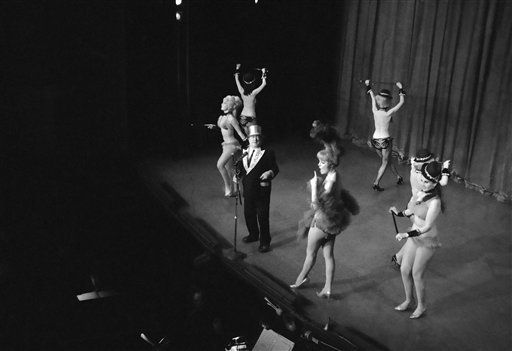The Supreme Court held in California v. LaRue, 409 U.S. 109 (1972), that given the states’ broad authority to regulate alcoholic beverages under the 21st Amendment, California provisions regulating explicitly sexual live entertainment and films presented in establishments licensed to sell liquor did not, on their face, violate the First or 14th Amendments.
LaRue recognized First Amendment rights in adult entertainment
In a later case, Peek-a-Boo Lounge of Bradenton, Inc. v. Manatee County (11th Cir. 2003), LaRue was described as the Court’s first decision recognizing “the existence of First Amendment freedom of expression rights in the adult entertainment context.”
Court said states could regulate adult entertainment
The decision spawned one concurrence and three dissents.
Justice Potter Stewart, in concurrence, noted that the 21st Amendment broadly delegates the states’ power to “specify the times, places, and circumstances where liquor may be dispensed.”
Justice Thurgood Marshall offered a comprehensive dissent, arguing that the regulations were overly broad and imprecise and therefore unconstitutional.
Justice William O. Douglas dissented on jurisprudential grounds, reasoning that California needed time to give the “generalized provisions of the rules … particularized meaning.”
Justice William J. Brennan Jr. dissented separately to express his view that the state imposed an unconstitutional condition on the grant of an alcohol license. Each justice noted that the case involved a facial challenge only.
Court said adult performances were protected but could be regulated
Justice William H. Rehnquist wrote the Court’s opinion for six justices. Though acknowledging that “at least some of the performances to which these regulations address themselves are within the limits of the constitutional protection of freedom of expression,” the Court found it critical that the state had not forbidden these performances across the board but had “merely proscribed such performances in establishments that it licenses to sell liquor by the drink.”
Later, in New York State Liquor Authority v. Bellanca (1981), the Court would hold that the 21st Amendment authorizes states to regulate nude dancing in places serving alcoholic beverages. The reasoning behind LaRue and Bellanca, however, was in turn “disavowed” in 44 Liquormart, Inc. v. Rhode Island (1996), in which the Court overturned a law banning all advertising of liquor prices.
This article was originally published in 2009. Cary Wiggins is a civil rights attorney with his practice in Atlanta. He has served as lead counsel in numerous cases involving First Amendment, Fourth Amendment, and Fourteenth Amendment claims. He frequently represents individuals who are asserting false arrest, malicious prosecution, excessive force, and public accommodation claims, as well as businesses seeking constitutional protections.

